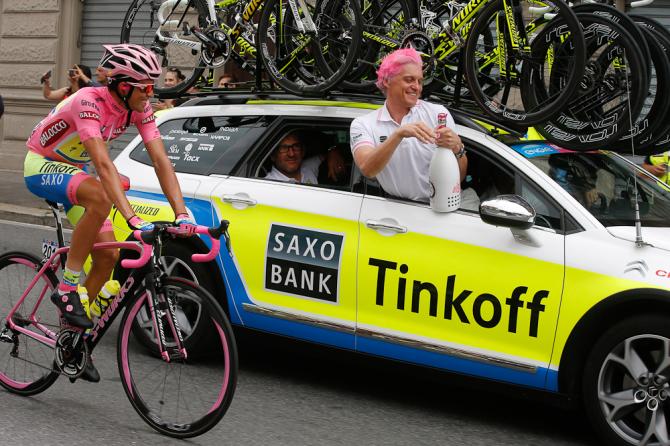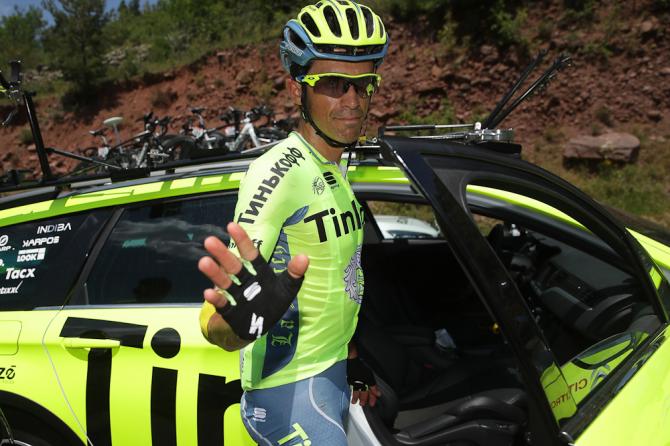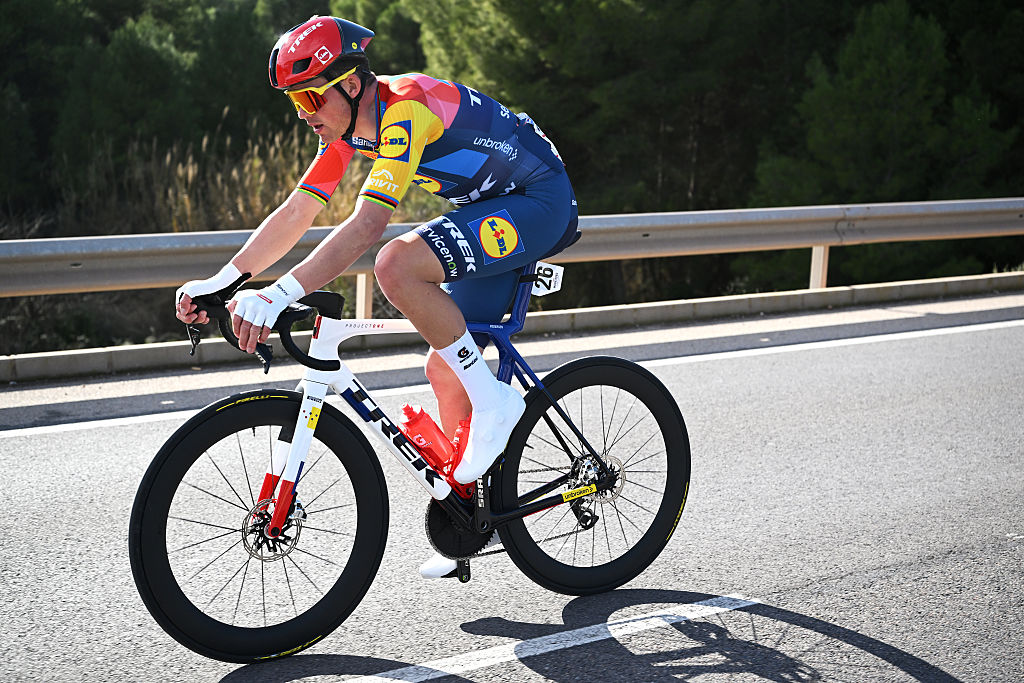Alberto Contador: Of course I can win another Tour de France
Spaniard talks Oleg, taking on Team Sky, Trek Segafredo and making history
The latest race content, interviews, features, reviews and expert buying guides, direct to your inbox!
You are now subscribed
Your newsletter sign-up was successful
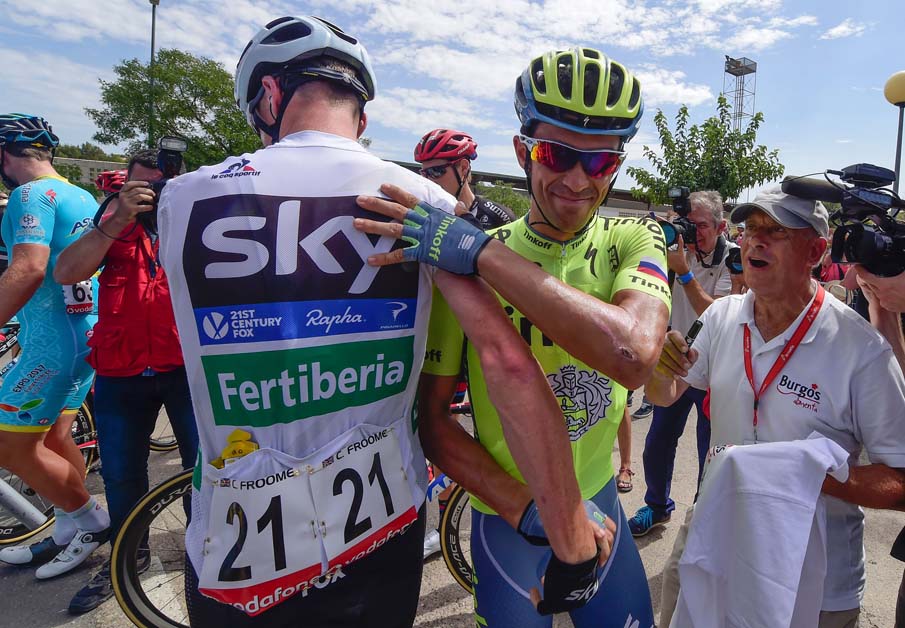
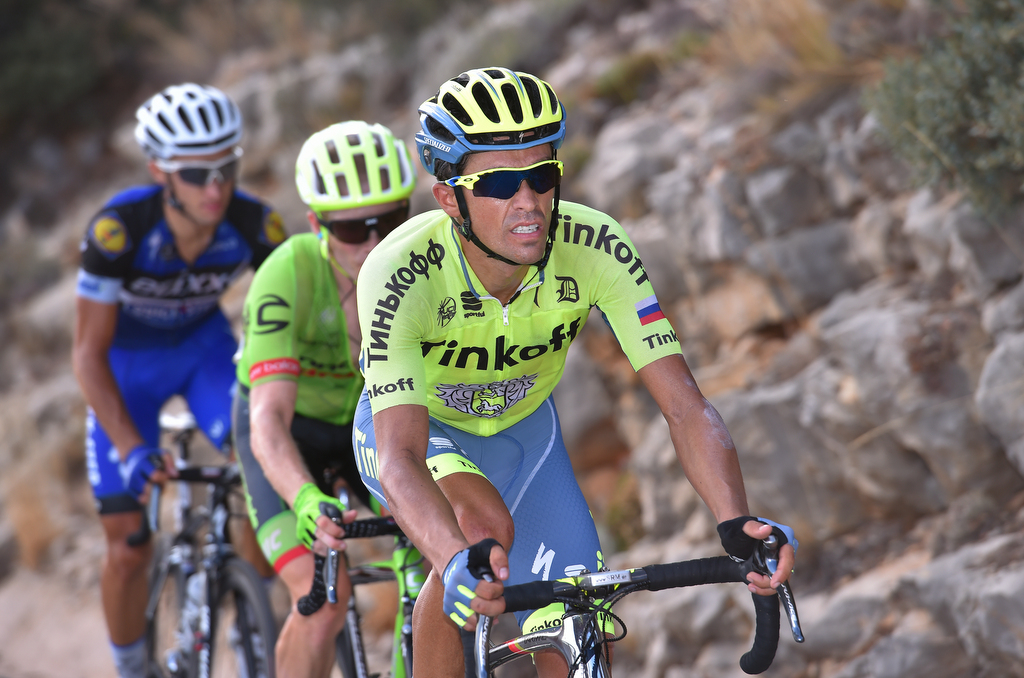
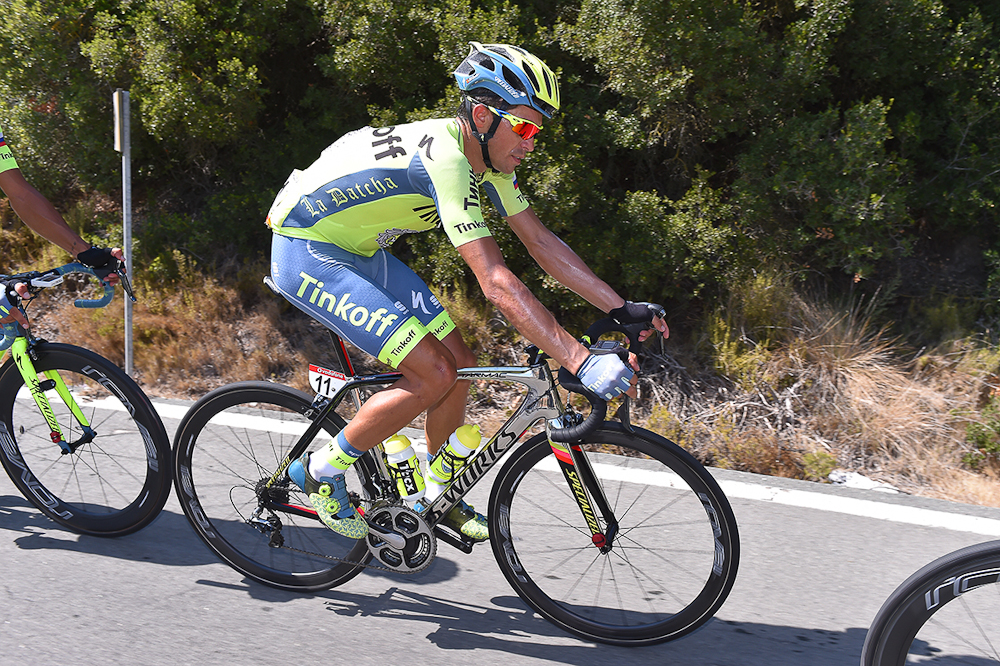
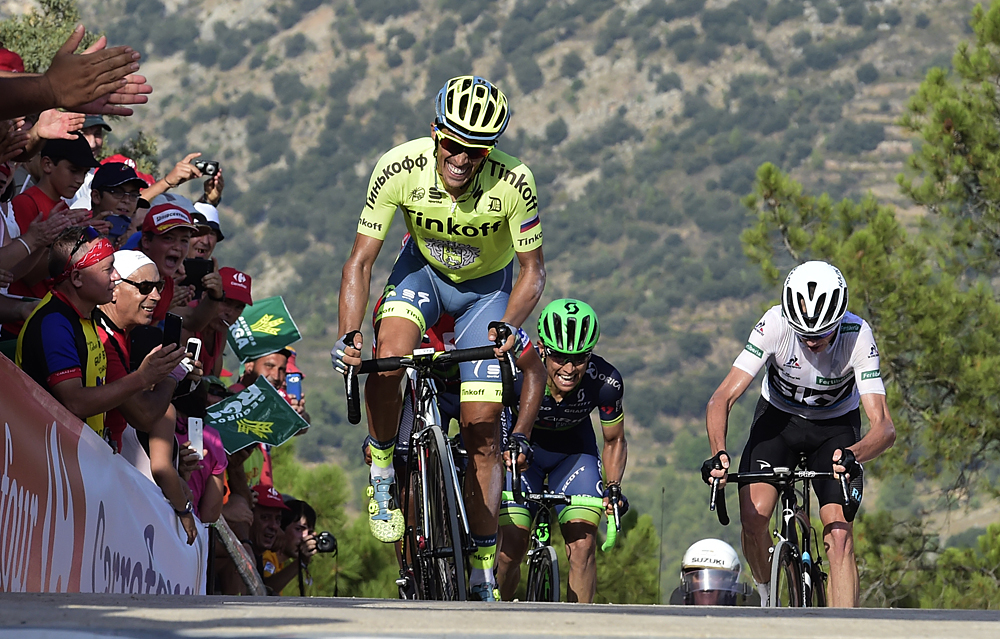
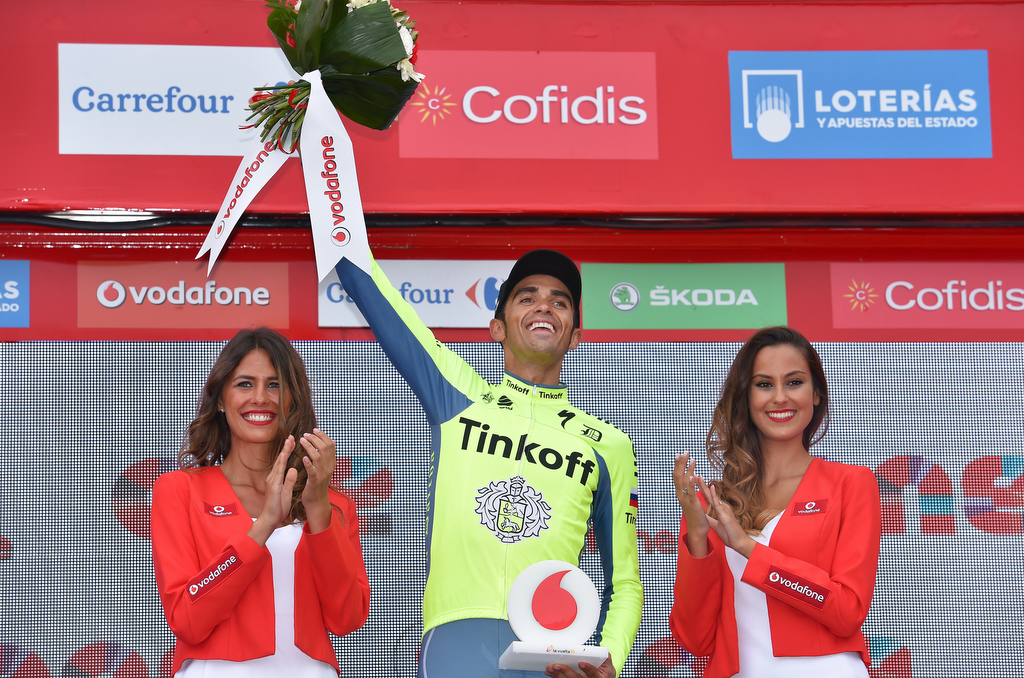
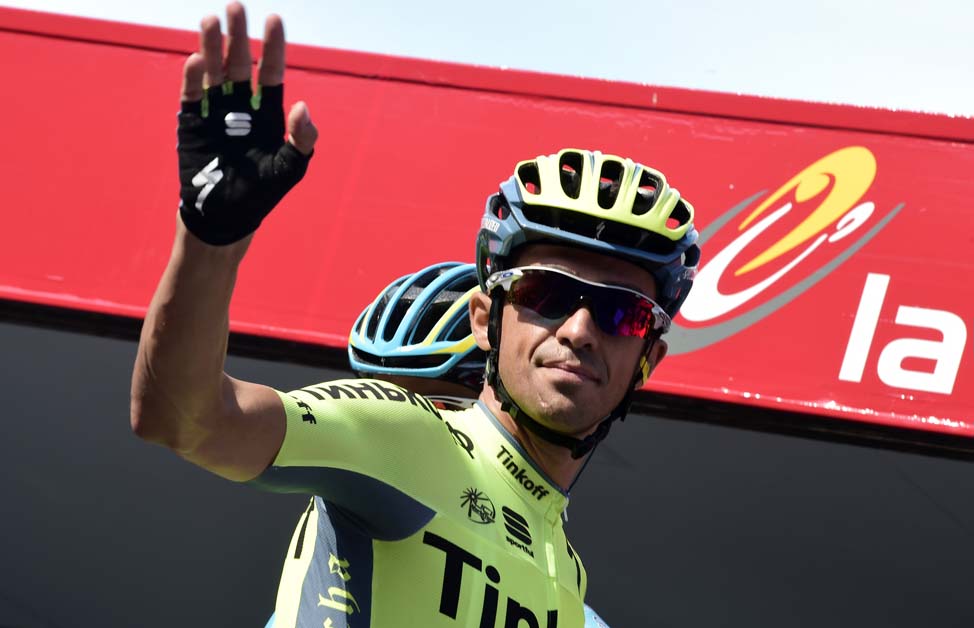
Alberto Contador is about to start a new chapter in his cycling career as he departs the folding Tinkoff team for Trek-Segafredo in 2017. Il Lombardia and the Abu Dhabi Tour mark the end of his time with the Russian outfit, where he has been through its various guises since 2011.
Contador's final season with the team has been a mixed bag with a superb start to the year contrasted by the misfortune of the Tour de France and the Vuelta a Espana. He was forced to abandon the Tour and recently finished fourth at the Vuelta after losing time in the first week.
A week after the Vuelta closed its doors, Cyclingnews sat down with Contador in a restaurant in Ponti de Legno, Italy the evening before a ride with fans up the Passo di Gavia. The Spaniard was in a relaxed mood as he looked back on his season, his time with the Tinkoff team, and his relationship with Oleg Tinkov. Contador also discussed his future with Trek, whether or not he still has a Tour de France victory in him and how long he can keep going.
Cyclingnews: It's a week since the Vuelta a Espana finished and you've had time to think about your result, what are your feelings about how the race went?
Alberto Contador: Now, I feel better, I feel good. It's true that it wasn't a very good Vuelta. I didn't achieve my goal, because the only goal that I had was to take victory, it was not a question of the podium. From the first day, it was a bad race. The race was really against me but I wanted to continue right up to the finish. My body paid the price for the crash but, finally, I am happy, because I enjoyed the race a lot with the fans. I wasn't so happy with the result but cycling is like this and at times things don't go how you want.
CN: We saw you break up the race on stage 15, what was going through your mind on that day?
AC: I started to think about that day after one kilometre of descent on the Aubisque, after the finish of the stage. From that moment, I had that attack in my mind. I wasn't happy when I finished the Aubisque stage because I felt good during the stage but the result was not good and I lost time to all of my rivals. Going head to head with riders like Froome and Quintana, I was missing something to them. The others, because they started moving around and accelerating, I fell back. I came to the Vuelta to race and after one kilometre of descending the Aubisque, I was already thinking about it.
The latest race content, interviews, features, reviews and expert buying guides, direct to your inbox!
The day after, I knew that I had only seven or eight kilometres to break the race and get away. The selection went perfectly for me. It started really well and we had a group with many different types of riders. It was a really strong escape and very quickly I saw that I had the option to do something. It is true that I was probably too generous at the start of the stage and I paid for that at the finish. That's why I was dropped and I couldn't win the stage. I was happy though, because it was a day for the history and fans of cycling. It will be remembered.
CN: You were able to put Team Sky into a lot of trouble on that day. Does that give you confidence going into future races?
AC: Each race is different: Different riders, tactics, how your legs are, the teams, for everything. When you see in a direct fight that you cannot win you have to look for other possibilities and that's what I did in this moment.
Oleg Tinkov and closing a chapter with Tinkoff
CN: Overall it has been a very mixed season for you, what are your feelings on how things panned out?
AC: I'm satisfied with my season. [Contador pauses to recall his results that season; podium finishes in all of his races leading up to the Tour de France]. I have gained some good results throughout the whole season. I was either on the podium or close to it in most races. My performances have been very strong throughout the whole year, right from the start. I did very well from Algarve to the Dauphine, I had a really good Dauphine, but it is true that the Tour was my main goal and it wasn't good. The Tour went wrong for me and at the Vuelta it was the same. I'm happy with the way that I raced at the Vuelta and throughout the whole year. I think that I can be satisfied with how it went but not content.
CN: Your time with the Tinkoff team is coming to an end. You've been with the team for a long time, with Bjarne Riis and then Oleg Tinkov. How were those two distinct periods for you?
AC: I can say only good things about Tinkov. He has offered me a lot during the last five years. I'm very thankful for this. During that time, there have been a lot of changes, especially when Bjarne left the team. In general, I'm happy with my whole time with this team. It has been a very good time and I will wear this jersey with pride until the last day of December.
CN: Oleg Tinkov is a big character in cycling. How was it working with him and did you have a good relationship?
AC: You don't really work with Oleg, you work with the staff of the team. Oleg is someone that you don't really know. He's a very passionate person when it comes to cycling, and with that passion he lives life intensely. There are probably people who are with him and who are against him but I think cycling has to be thankful for him. He has put a lot of money into cycling. Now, cycling teams are very expensive and what he did was really important.
CN: In recent years, you lost some experienced riders to retirement in Ivan Basso and Michael Rogers. Do you feel that, lately, you have lacked the support you needed in Grand Tours?
AC: It's not really about having a weak team. It's more to do with the fact that we lost some important pillars in the team, who were physically at a high level but also very experienced. In the end, we paid for that. It's difficult when you have riders who help you but can't be up there in the finish. When you have only a few riders, maybe the pressure on them is quite high and sometimes they are not able to take that pressure.
When you're against teams, for example, like Team Sky, who have 18 riders who could be at the start of the Tour de France and then you have a smaller team that maybe has 11 riders and you lose a rider then it could be very important.
The 2017 season and beyond
CN: You will move to Trek-Segafredo next season. What made you chose the team and what are your thoughts on your future with them?
AC: I'm very excited. I think, and I hope, that I have made the right decision. The decision was made with a sporting point of view; this is a team that I have the best feeling with. We have similar goals for next season, and the fundamental thing is that they have a very strong team with riders for all sorts f terrain. They have taken on some very important riders and the staff know how to win the big races. The other important thing is the equipment, which I know very well. I have been with Trek before (at Discovery Channel and Astana - ed) and that is also very important.
CN: Is the Tour de France still your main goal going into next season?
AC: I am a rider who likes to race the whole year, not just one race, whether it's the Tour or the Vuelta or whatever. But, for sure, my number one objective next year will be the Tour again.
CN: Do you think that you still have a Tour de France victory in you?
AC: We will see. I think so. If I didn't believe that I still had the ability to win the Tour de France then I would finish cycling.
CN: You came very close to retiring this season, what made you change your mind and how long can you keep going?
AC: I changed my mind mostly because my numbers, those famous and 'polemic' numbers that tell you what you can potentially do in cycling. The numbers on the SRM were better than ever. It was also because of the support of the fans, which was really important in me making this decision. In all of the racing, the support was fantastic, in the Tour, and the Vuelta. When you enjoy what you do, you feel as good as ever and the people around you are always asking why you are leaving cycling, then you change your mind. After that and when I'm not thinking about a particular date to stop cycling. I'm now going season by season, I will decide in the future.
CN: What will be the deciding factor when you do retire? Do you want to go out on top or will you keep going as long as you still have passion for the sport?
AC: For me, it's fundamental to be at the top level. If not, then that will be the moment that I finish with cycling.
Born in Ireland to a cycling family and later moved to the Isle of Man, so there was no surprise when I got into the sport. Studied sports journalism at university before going on to do a Masters in sports broadcast. After university I spent three months interning at Eurosport, where I covered the Tour de France. In 2012 I started at Procycling Magazine, before becoming the deputy editor of Procycling Week. I then joined Cyclingnews, in December 2013.
